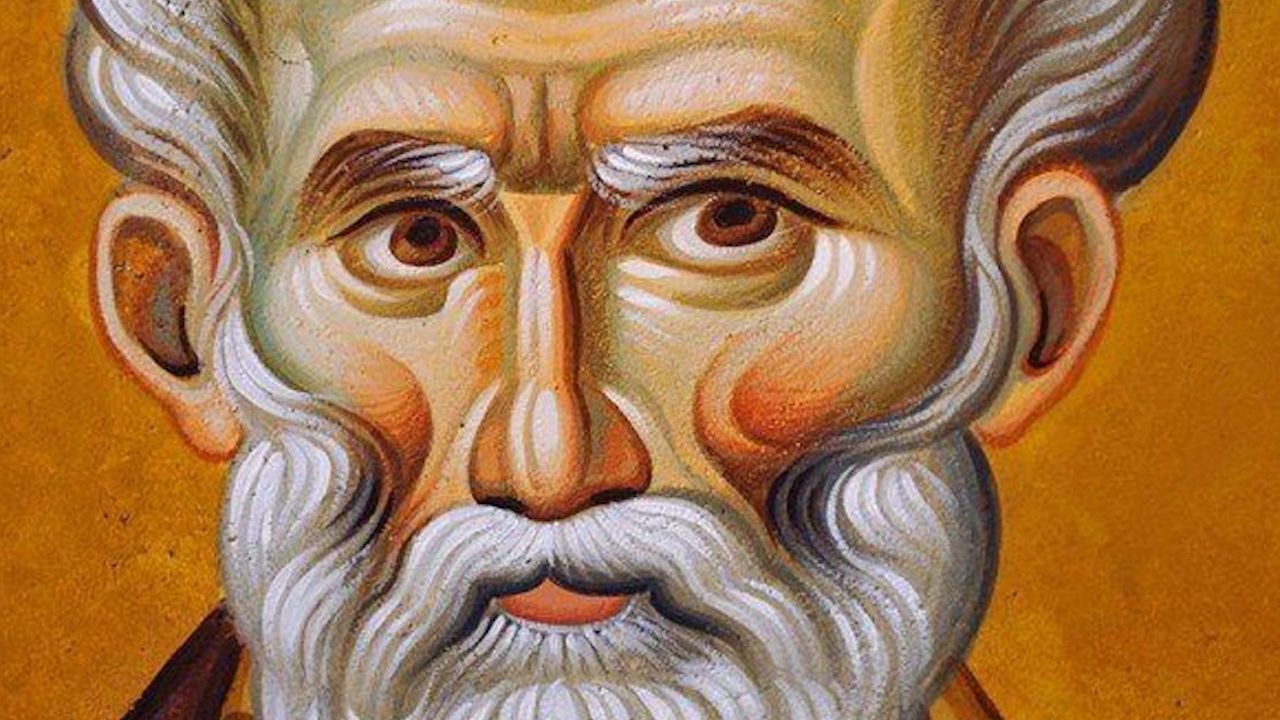Santa Claus
The Divinely Good St Nicholas
by Fr. Thomas Hopko
Feast of St Nicholas the Wonderworker, Archbishop of MyraAnno Domini 2019, December 6
The extraordinary thing about the image of Saint Nicholas in the Church is that he is not known for anything extraordinary. He was not a theologian and never wrote a word, yet he is famous in the memory of believers as a zealot for orthodoxy, allegedly accosting the heretic Arius at the first ecumenical council in Nicaea for denying the divinity of God’s Son. He was not an ascetic and did no outstanding feats of fasting and vigils, yet he is praised for his possession of the “fruit of the Holy Spirit . . . love, joy, peace, patience, kindness, goodness, faithfulness, gentleness, self-control” (Gal. 5:22-23). He was not a mystic in our present meaning of the term but he lived daily with the Lord and was godly in all of his words and deeds. He was not a prophet in the technical sense, yet he proclaimed the Word of God, exposed the sins of the wicked, defended the rights of the oppressed and afflicted, and battled against every form of injustice with supernatural compassion and mercy. In a word, he was a good pastor, father, and bishop to his flock, known especially for his love and care for the poor. Most simply put, he was a divinely good person.
We use that term "goodness" so lightly in our time. How easily we say of someone, “He is a good man” or “She is a good woman.” How lightly we say, “They are good people.” A teen-age girl takes an overdose of drugs, and the neighbors tell the reporters, “But she was always such a good girl, and her parents are such nice people!” A young man commits some terrible crime, and the same rhetoric flows: “But he was always such a good boy, and his family is so nice.” A man dies on the golf course after a life distinguished by many years of profit-taking and martini-drinking, and the reaction is the same: “He was a good man, yeah, a real nice guy.” What do "good" and "nice" really mean in such cases? What do they describe? What do they express?
In Saint Luke’s gospel it tells us that one day a "ruler" came up to Jesus and asked, “Good Teacher, what shall I do to inherit eternal life?” And Jesus answered him, “Why do you call Me good? No one is good but God alone” (Lk. 18:18; cf. Mk. 10:18). In Saint Matthew’s version it says that Jesus answered the man by saying, “Why do you ask Me about what is good? One there is who is good” (Mt. 19:17). However we choose to interpret Christ’s words, at least one point is clear. Jesus reacts to the facile, perhaps even sarcastic, use of the term "good" by referring it to its proper source. There is only One who is good, and that is God Himself. If you want to speak of goodness, then you must realize what – and Whom – you are talking about!
Like God, and like Jesus, Saint Nicholas was genuinely good. Real goodness is possible. For, to quote the Lord again, “with men this is impossible, but with God all things are possible” (Mt. 19:26). A human being, even a rich human being who believes in God, can be genuinely good with God’s own goodness. “For truly I say to you,” says the Lord, “if you have faith as a grain of mustard seed . . . nothing will be impossible to you” (Mt. 17:20-21).
The Messiah has come so that human beings can live lives which are, strictly speaking, humanly impossible. He has come so that people can really be good. One of the greatest and most beloved examples among believers that this is true is the holy bishop of Myra about whom almost nothing else is known, or needs to be known, except that he was good. For this reason alone he remains, even in his secularized form, the very spirit of Christmas.
O holy father,
The fruit of your good deeds has enlightened and delighted the hearts of the faithful.
Who cannot wonder at your measureless patience and humility?
At your graciousness to the poor?
At your compassion for the afflicted?
O Bishop Nicholas,
You have divinely taught all things well,
And now wearing your unfading crown, you intercede for our souls.
~Vespers for Feast of St Nicholas
You appeared to your flock as a rule of faith,
An image of humility and a teacher of abstinence.
Because of your lowliness, heaven was opened to you.
Because of your poverty, riches were granted to you.
O holy Bishop Nicholas,
Pray to Christ our God to save our souls.
~Troparion for Feast of St Nicholas
* Excerpted from Thomas Hopko, The Winter Pascha, pp. 38-40. Available for purchase at Eighth Day Books
Fr. Thomas Hopko (1939-2015) was an Orthodox priest who served as Dean and Professor of Dogmatic Theology at St Vladimir's Orthodox Theological Seminary.
Contribute to Cultural Renewal by Sharing on Your Preferred Platform
In an isolating secularized culture where the Church's voice is muffled through her many divisions, Christians need all the help they can get to strengthen their faith in God and love toward their neighbor. Eighth Day Institute offers hope to all Christians through our adherence to the Nicene faith, our ecumenical dialogues of love and truth, and our many events and publications to strengthen faith, grow in wisdom, and foster Christian friendships of love. Will you join us in our efforts to renew soul & city? Donate today and join the community of Eighth Day Members who are working together to renew culture through faith & learning.










